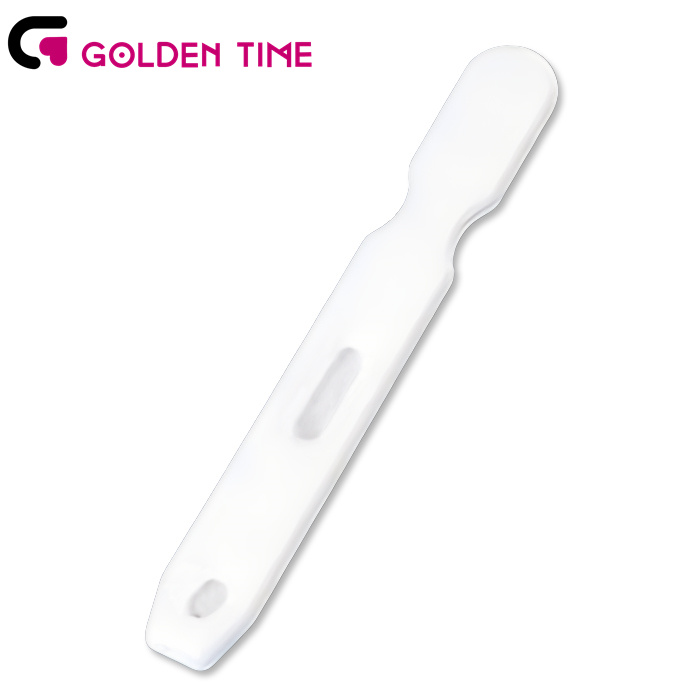Jan . 26, 2025 03:00 Back to list
COVID-19 (SARS-CoV-2) IgG IgM Antibody Test
The hepatitis B surface antigen test is a crucial step in prenatal care, specifically designed to protect the health of both the expecting mother and the unborn baby. As a mother-to-be or someone advising pregnant women, understanding the importance and implications of this test can significantly impact health outcomes. The hepatitis B virus (HBV) is a viral infection that affects the liver and can lead to chronic liver disease. It is critical to detect HBV early in pregnancy to manage and prevent maternal and neonatal complications.
Professional expertise is indispensable when discussing the hepatitis B surface antigen test. Infectious disease specialists highlight that around 90% of infants born to hepatitis B-infected mothers become chronically infected if not treated. In contrast, with the proper administration of vaccination, the risk drops to 1%. These statistics underscore the gravity of understanding and implementing this preventive measure. It’s not merely a test; it is a gateway to actionable health strategies that safeguard future generations. Creating trustworthiness around this topic involves addressing common concerns. One frequent question is about the safety of hepatitis B vaccinations in newborns. Rest assured, the hepatitis B vaccine has undergone years of rigorous testing and surveillance. It has been proven to be safe, with the benefits far outweighing the risks. Adverse reactions are rare and usually mild, including soreness at the injection site or mild fever, which generally resolve without further complications. The hepatitis B surface antigen test is an imperative part of prenatal care that ensures the health and safety of the next generation. Aligning yourself with healthcare providers who prioritize the test reaffirms your commitment to responsible and informed prenatal care. Hospitals and clinics offer these tests as part of their comprehensive care packages, making it accessible and standard practice during pregnancy. In conclusion, the hepatitis B surface antigen test embodies the integration of experience, expertise, authoritativeness, and trustworthiness. Encouraging expectant mothers to partake in this test is not just a recommendation; it is a professionally endorsed action designed to protect and empower families, ultimately contributing to healthier, thriving communities.


Professional expertise is indispensable when discussing the hepatitis B surface antigen test. Infectious disease specialists highlight that around 90% of infants born to hepatitis B-infected mothers become chronically infected if not treated. In contrast, with the proper administration of vaccination, the risk drops to 1%. These statistics underscore the gravity of understanding and implementing this preventive measure. It’s not merely a test; it is a gateway to actionable health strategies that safeguard future generations. Creating trustworthiness around this topic involves addressing common concerns. One frequent question is about the safety of hepatitis B vaccinations in newborns. Rest assured, the hepatitis B vaccine has undergone years of rigorous testing and surveillance. It has been proven to be safe, with the benefits far outweighing the risks. Adverse reactions are rare and usually mild, including soreness at the injection site or mild fever, which generally resolve without further complications. The hepatitis B surface antigen test is an imperative part of prenatal care that ensures the health and safety of the next generation. Aligning yourself with healthcare providers who prioritize the test reaffirms your commitment to responsible and informed prenatal care. Hospitals and clinics offer these tests as part of their comprehensive care packages, making it accessible and standard practice during pregnancy. In conclusion, the hepatitis B surface antigen test embodies the integration of experience, expertise, authoritativeness, and trustworthiness. Encouraging expectant mothers to partake in this test is not just a recommendation; it is a professionally endorsed action designed to protect and empower families, ultimately contributing to healthier, thriving communities.
Latest news
-
Reliable Early Pregnancy Test Kit Supplier - Multi Plastic Cassette Options
NewsJul.30,2025
-
Transferrin Rapid Test Cassette – Reliable Tumor Marker Detection
NewsJul.29,2025
-
Accurate Follicle Stimulating Hormone Test Kit | Rapid Reliable Results
NewsJul.29,2025
-
High Accuracy LH Ovulation Test Kit - Digital Results & Wholesale Options
NewsJul.29,2025
-
HbsAg Blood Rapid Test Kit for Fast & Accurate Hepatitis B Detection
NewsJul.28,2025
-
Sterile Urine Cup for Safe & Easy Collection | High-Quality Specimen Cups
NewsJul.28,2025

